--23e and 221 'Speed of the Wind' Racing Car (1936-56) (cont...)
Thanks Jan.
I still haven't told everyone (except Walter) about my other recent pre-war find. I'll get some photos up soon.
Jan, a very nice and interesting comparison of the pre-war base with the post-war one. You will of course immediately see the difference. The large post-war lettering against the small pre-war and the omission of the wheel drive on the post-war because of the lettering. The earliest without name of the model. The latest with model number. I like comparisons like that.
What is also immediately noticeable are the holes in the base of the pre-war and the differences in rivets. I wonder why the holes in the base were needed. Was this perhaps necessary for pressing the wheel drive bulge?
Kind regards, Jan Oldenhuis
Thank you, gentlemen, for your comments.
I presume the holes are for fixing the models during paint spraying, that is, for the models which have base plates in the same colour as the body only.
I had not noticed that angel wings difference before! My two examples without are models with domed axle ends. The others have crimped axle ends.
So I produced an adjusted picture below. Kind regards, Jan
My version almost has to be from 1946, and has the angel wings and red baseplate, along with smooth, non-ridged wheels, white tires, and painted driver's face.
Best regards, Terry
Jan--Very nice, and I think this one of yours and mine shown above must be from the same, very early post-war time......1945-1946, as each has the same features.
Best regards, Terry
I agree, Terry, this is the silver brother of your red one, except for the unusual, white finished driver, albeit with the same face detail. Thanks and kind regards, Jan
In 1936, the V12 Rolls Royce aeroengine of the "Speed of the Wind" was replaced by a diesel engine, the car was resprayed in red and now called "Flying Spray". Eyston continued to achieve records in 1936/37. Willi's cigarettes card therefore show the "Flying Spray" rather than the "Speed of the Wind".
Right after the war the Dinky "Speed of the Wind" had its base plate rivetted instead of just clipped-in and was initially available with thick post-war axles (1.9mm instead of 1.6mm) and smooth pre-war rims. Colour schemes were red, sometimes with a with white stripe or silver, sometimes with a red stripe, the drivers were white, later brown or black.
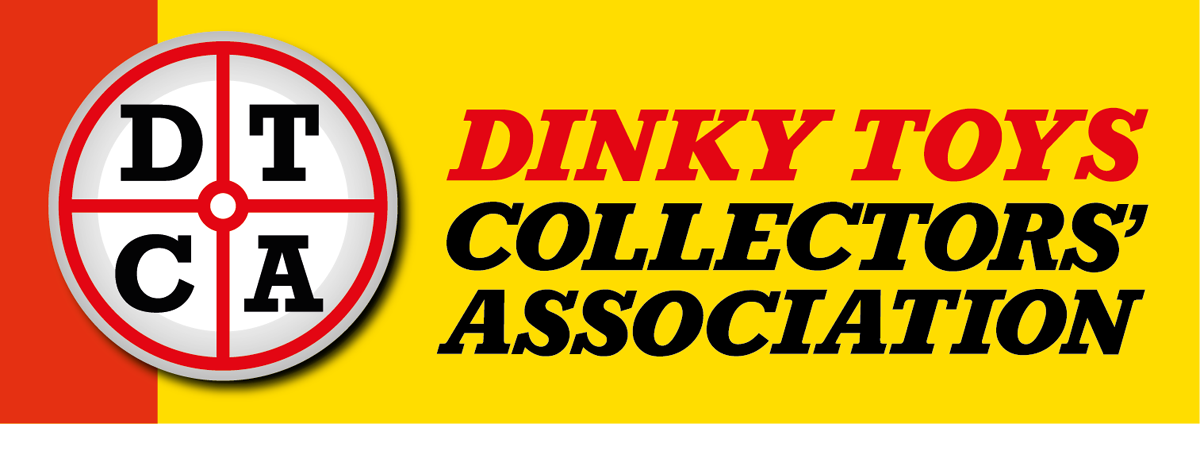

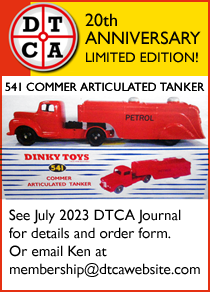
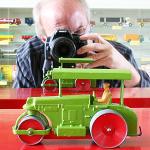


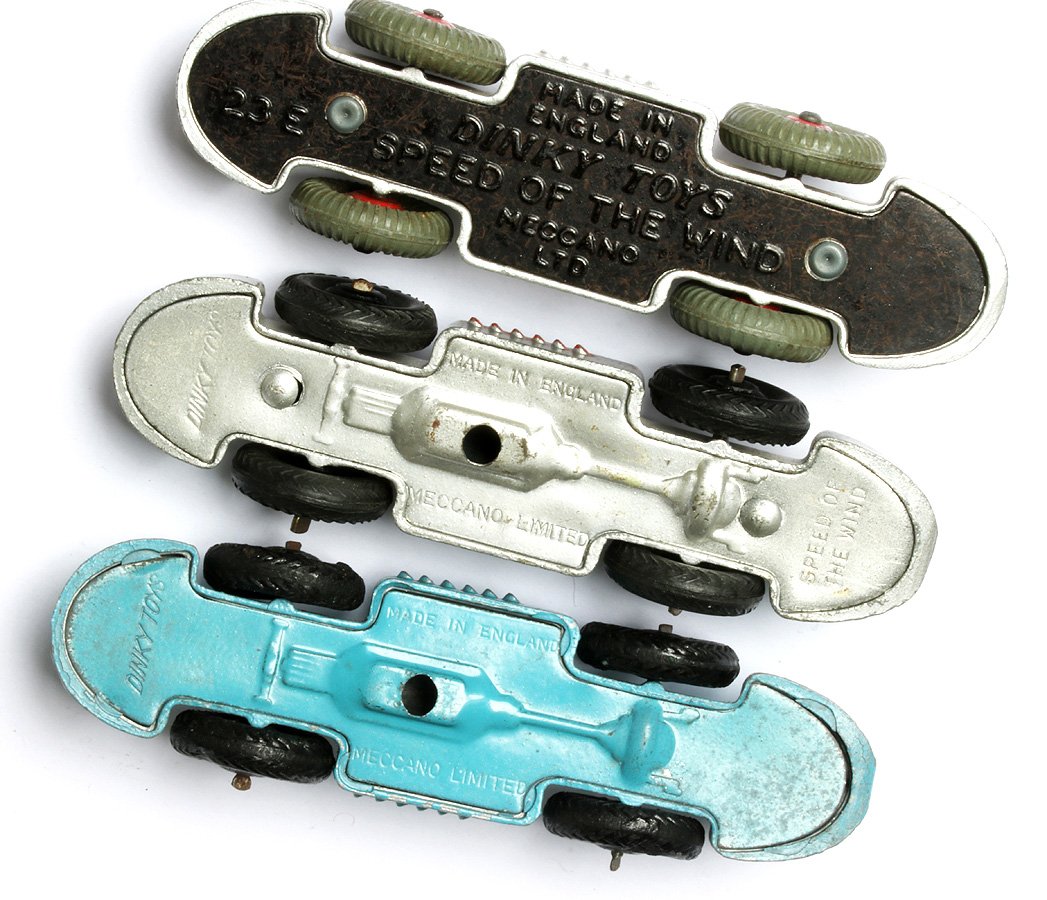

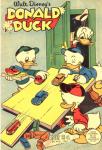
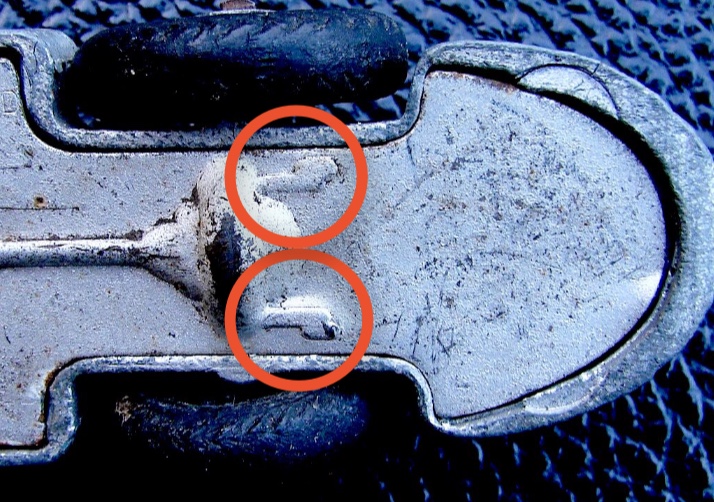

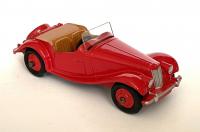
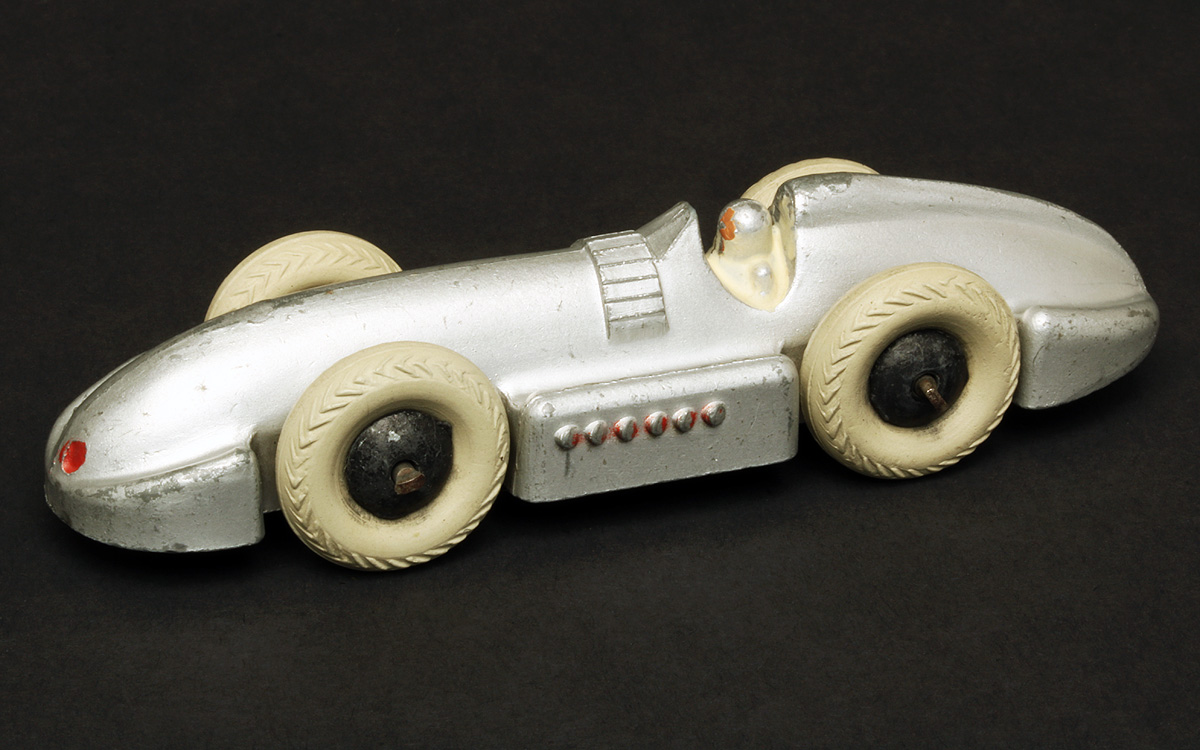


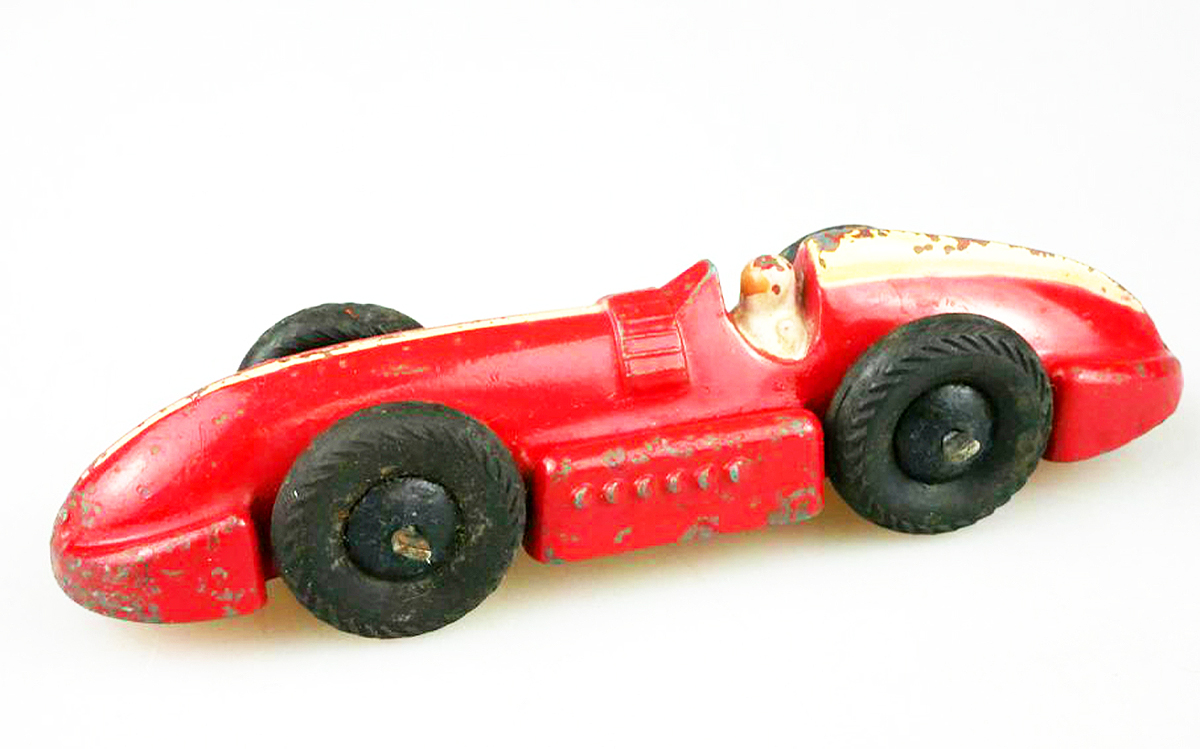
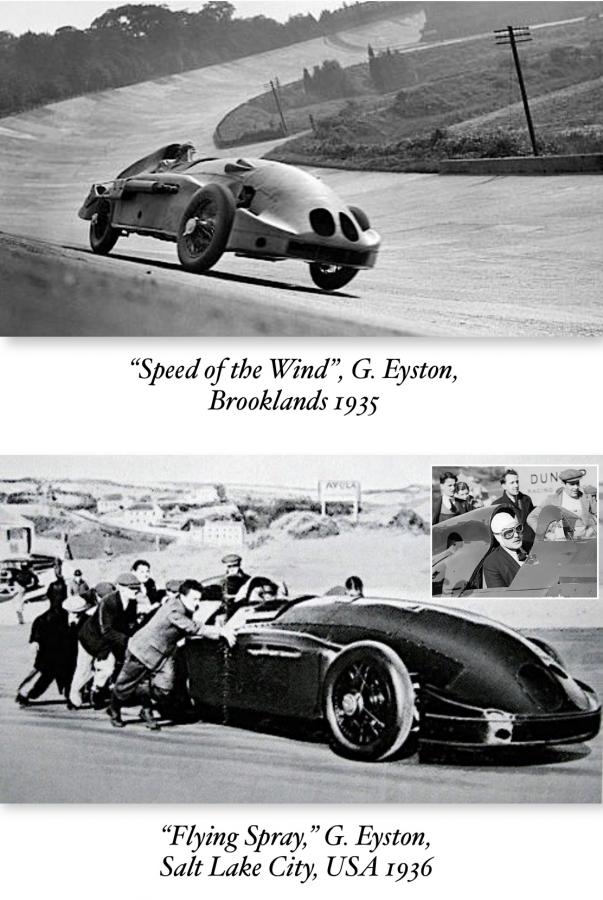
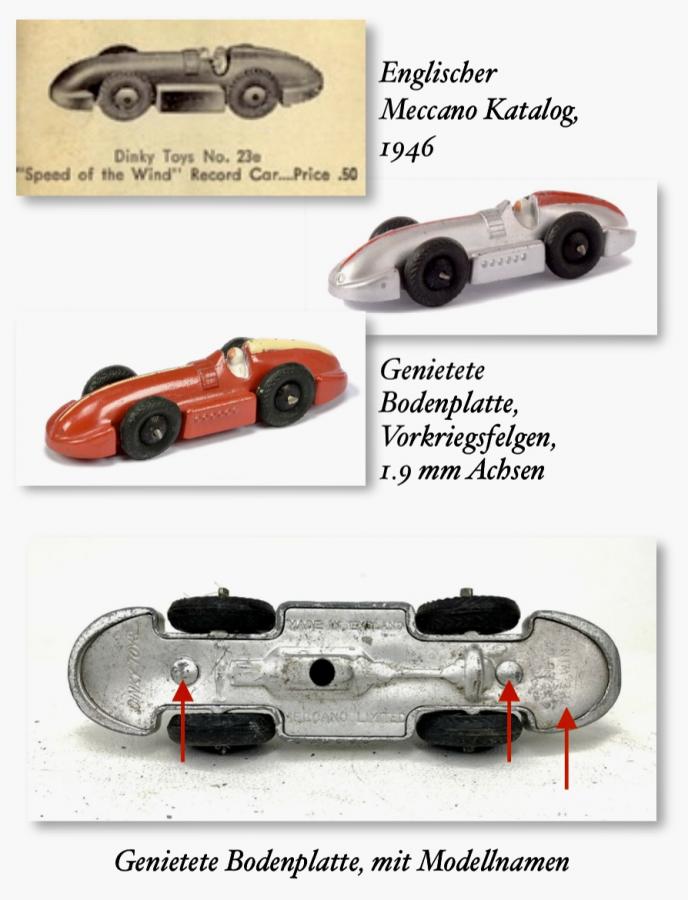
Membership renewal
Membership renewal
Membership renewal
-Boxes General Discussions including end flaps, both British and French
Membership renewal
Membership renewal
-537 Renault 16 TL
-Boxes General Discussions including end flaps, both British and French
-Boxes General Discussions including end flaps, both British and French
-Boxes General Discussions including end flaps, both British and French
-Boxes General Discussions including end flaps, both British and French
DTCAwebsite upgrade 2023
DTCAwebsite upgrade 2023
DTCAwebsite upgrade 2023
616-AEC with Chieftain Tank
DTCAwebsite upgrade 2023
DTCAwebsite upgrade 2023
DTCAwebsite upgrade 2023
-073 Land Rover, Horse Box and Horse (1960-67)
DTCAwebsite upgrade 2023
-073 Land Rover, Horse Box and Horse (1960-67)
DTCAwebsite upgrade 2023
DTCAwebsite upgrade 2023
-105c and 383 4-Wheel Hand Truck (1949-1958)
-105c and 383 4-Wheel Hand Truck (1949-1958)
DTCAwebsite upgrade 2023
DTCAwebsite upgrade 2023
DTCAwebsite upgrade 2023
DTCAwebsite upgrade 2023
DTCAwebsite upgrade 2023
DTCAwebsite upgrade 2023
DTCAwebsite upgrade 2023
DTCAwebsite upgrade 2023
DTCAwebsite upgrade 2023
DTCAwebsite upgrade 2023